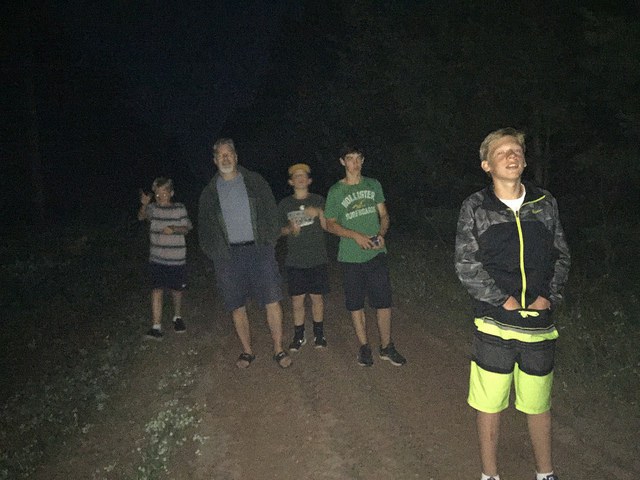 When Miss Bates started reading romance again in 2007, she scoured various “best of” lists looking for titles to read. Karen Templeton’s Swept Away was one of those discoveries. It languished in the TBR for ten years before Miss Bates read it and she hasn’t a clue why, except so many books, so much day-job.
When Miss Bates started reading romance again in 2007, she scoured various “best of” lists looking for titles to read. Karen Templeton’s Swept Away was one of those discoveries. It languished in the TBR for ten years before Miss Bates read it and she hasn’t a clue why, except so many books, so much day-job.
Swept Away opens with three-years widowed Sam Frazier, single dad and one of Haven (pop. 1000), Oklahoma’s family farmers. We’re introduced to his brood: teen daughter, Libby, and five younger brothers, baby Travis, Mike, Matt, Wade, and Frankie, all school-aged, as well as farm animals and sundry house-pets. Having put all the kids but Travis on the school bus, Sam is making his way to the hardware store when he rescues a maiden of stick-like proportions and her father from their ditch-succumbing vehicle. Lane Stewart introduces himself and Carly, his daughter, quipping, ” ‘My daughter, Carly. To whom a certain squirrel owes its life.’ ” The Stewarts, it turns out, are on a road trip, hoping to recover from lives that have been too sad for too long. Lane and Carly lost a beloved wife and mother, and Carly is nursing an injured knee that won’t see her resume her balletic career. With this “meet-cute,” Templeton tells the romance of how nice-guy farmer and prickly, wounded dancer fall in love and reach an HEA that promises family, love, laughter, and community.
Templeton writes about her heroine and hero and their many friends and family with an adept hand at both sentimentality and humor. When she’s at her best, with a perfect balance of the two, the reader chuckles and is moved on the same page. A case in point is how she describes Carly’s initial response to Sam:
… there was nothing remarkable about the man. Just a country guy in jeans and plaid shirt worn open over a t-shirt, sun-baked features shadowed by the brim of a Purina ball cap. Nothing noteworthy at all. But her eyes would keep moseying back over there, wouldn’t they?
Like every good romance writer who writes in the realistic, contemporary vein, Templeton posits both the ordinariness and extra-ordinariness of her hero and heroine. To Carly, who does not yet understand what the reader does and author intends, that she’s met her life’s mate, Sam is just another “country guy”, but her “eyes’ will betray her because she can’t stop looking at him.
Templeton builds this initial physical impression, where Carly “chooses” Sam with her “eyes”, to insight about his inner qualities:
… she looked up into his face and damned if she didn’t forget to breathe for a second or two. Because there was a substance behind those brandy-coloured eyes that she hadn’t seen in an extraordinarily long time. If ever … It was honesty, she thought with a start. The completely ingenuous openness of a man with no hidden agenda …
Throughout Swept Away, Templeton, via Sam’s insight, proves how very much Carly is in need of a nice guy. This passage shows Carly’s first realization of Sam’s special-ness. Keep in mind, however, Sam is no a card-board figure. He too has suffered; his wife’s loss was devastating. He carried on, wanting to make a good life, a happy life, for his children. It is true, therefore, that Sam is a man used to giving of his heart, time, friendship, and Carly is very much in need of those.
For Carly to feel connected to Sam, he can’t just be: a. an attractive looker (though he is), or b. a saint (though he’s pretty marvelous). Carly, posits Templeton, must also find something in common with Sam to connect: “The obvious love in Sam’s voice, the residual grief – something she understood all too well herself – somehow made her feel very, very humble. And shallow.” Carly’s losses, her mom, career, aren’t small potatoes, but when she measures them against Sam’s, she recognizes the enormity of what his family has suffered. When Jeannie died, for example, baby Travis was only one. And Sam built a life for them, with holidays, presents, meals, and homework, ran the house, the farm, substituted at the local high school, and remained an generous, warm neighbor and friend.
No matter how difficult things have been for Sam, his giving nature allows him to open his heart to Carly. For Carly, and it is more her emotional journey than Sam’s, this, at times, feels near impossible:
It had been a long time since she’d wanted to let anybody in, she realized. She wasn’t sure she knew how, anymore. Or even if it was worth it. But there had to be something more than this chronic emptiness, an emptiness that seemed to yawn wider with every affair, every pointless relationship.
It’s important to note that Templeton is too good a writer to stereotype Carly’s choices. Carly’s promiscuity comes from trauma and Templeton and we feel only sympathy for her. Templeton handles this adroitly, using Carly’s experience in Sam’s struggle to come to terms with his daughter’s blossoming sexuality. This secondary narrative thread is powerful in and of itself and also brings Carly and Sam closer together.
Despite a growing closeness and healthy dose of lusty attraction, Templeton writes her heroine as fearful of intimacy, frightened of emotional connection and reliance on another person. Sam recognizes this in Carly and offers one of the sweetest love proposals Miss Bates has read. He also recognizes, however, that Carly will run scared because she’s never had to confront her trust issues: “An inability to trust might make you safe – in some ways – but as far as Sam could tell, it didn’t make you strong.” Bless her, Carly is as fragile as her stick-thin ballerina-body.
Templeton couches Carly’s healing and growth in images of surrender, as they’re echoed in the title’s idea of being “swept away.” And the surrender is also described in religious terms, beautifully so:
Carly … ‘d never been particularly religious, but she thought this was what people meant when they talked about “grace” – the ability to not only accept a situation, or even to make the best of it, but to be lifted above it. And without warning, regret swept through her, not that she hadn’t experienced a loss like that, but she’d never loved, or been loved, that completely and deeply and thoroughly.
Miss Bates thought this was such a powerful passage because it tells of Carly finally wanting to be vulnerable, seeing vulnerability as something desirable and meaningful. Carly comes to this realization because Sam is an example of loss and love and, most importantly, transcendence, without becoming numb, or cynical, or self-hating, as she did. At this point in the narrative, the reader, as Templeton intends, can see there are still relationship growing pains for Sam and Carly, but the HEA is foreshadowed in this beautiful echo of the title: ” … she … got swept up in the tidal wave of dogs and people moving toward the house … ”
Miss Bates will also say here that Templeton writes Miss B’s favourite type of love scene, late in the narrative and a culmination of hard-won truths and emotional engagement. Sex, rightly so, only complicates Sam and Carly’s relationship and though what resolves it is an deus ex machina, let’s just say that God’s Hand is most welcome in the forms of grace and sweep.
Karen Templeton’s Swept Away is a romance Miss Austen would’ve enjoyed. With her, Miss Bates says it is a perfect example of Miss Austen’s wisdom that “there is no charm equal to tenderness of heart,” Emma.
Karen Templeton’s Swept Away was published by Harlequin’s Silhouette Intimate Moments line in 2005. Miss Bates had it in the TBR, having purchased it herself, for far too long. You, dear reader, may procure it for your enjoyment, in “e” only, from your preferred vendor.
Rate this:Share this:- More





